Listen to this article (with local TTS)
-
We're moving our coverage to a new pagepublished at 23:05 British Summer Time 22 June
-
The big questionpublished at 22:59 British Summer Time 22 June
-
World should thank Trump, Israeli representative at UN sayspublished at 22:36 British Summer Time 22 June
-
US 'waged a war under absurd pretext' - Iranian representative at UNpublished at 22:27 British Summer Time 22 June
-
Three killed by Israeli strike on ambulance, Iranian governor sayspublished at 22:12 British Summer Time 22 June
-
'Why wouldn't there be a regime change?' - Trumppublished at 22:03 British Summer Time 22 June
-
The damage to Iran's nuclear sites is said to be monumental - Trumppublished at 21:56 British Summer Time 22 June
-
Netanyahu: We have 'interesting intel' on where Iran's 60% uranium ispublished at 21:52 British Summer Time 22 June
-
US strikes aimed at stopping Iranian nuclear threat, says US representative at UNpublished at 21:48 British Summer Time 22 June
-
Starmer and Trump 'agree Iran must never have nuclear weapon' in phone callpublished at 21:42 British Summer Time 22 June
Breaking
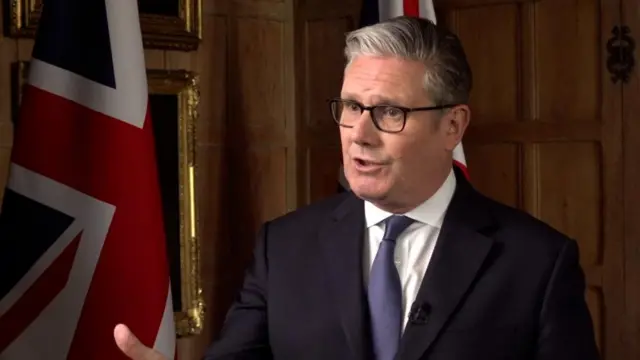Image source, PA Media
Image caption,
Keir Starmer, pictured earlier today
UK Prime Minister Keir Starmer and US President Donald Trump spoke via phone this evening, Downing Street has just announced.
"The leaders discussed the situation in the Middle East and reiterated the grave risk posed by Iran's nuclear programme to international security," the statement says.
"They discussed the actions taken by the US last night to reduce the threat and agreed that Iran must never be allowed to develop a nuclear weapon."
The leaders repeated the "need for Iran to return to the negotiating table as soon as possible" to progress to a "lasting settlement," the statement adds, with the pair agreeing to "stay in close contact" in the coming days.
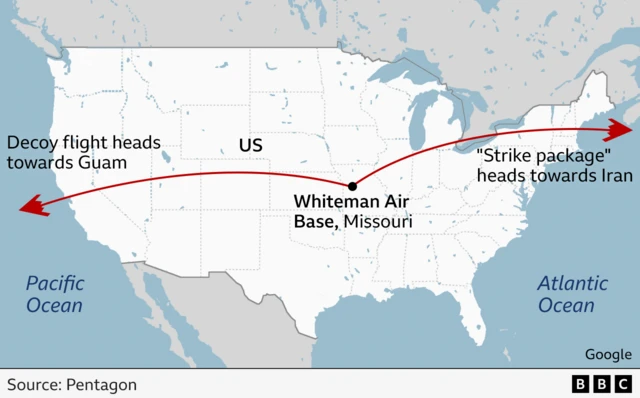
Earlier, we heard from US defence secretary Pete Hegseth and Dan Caine, chairman of the Joint Chiefs of Staff.
Caine outlined the timeline for "Operation Midnight Hammer" at the press conference in the Pentagon, saying that seven B-2 bombers were involved in an 18-hour flight from America to the target area.
Just before the aircraft entered Iranian airspace, more than two dozen Tomahawk cruise missiles were launched from a US submarine at targets at the Isfahan site, he said.
As the bombers entered Iranian airspace, the US deployed "several deception tactics, including decoys," with fighter jets clearing the airspace ahead of them, checking for enemy aircraft and surface-to-air missiles, Caine said.
The lead B-2 then dropped two GBU-57 Massive Ordnance Penetrators (MOPs) - also known as "bunker buster" bombs - on the nuclear site at Fordo. Caine said a total of 14 MOPs were dropped on two target areas.
All three Iranian nuclear infrastructure targets were hit between 18:40 Eastern time (23:40 BST) and 19:05 Eastern time (00:05 BST), Caine said.
The bombers then exited Iranian airspace and began their return to the US.
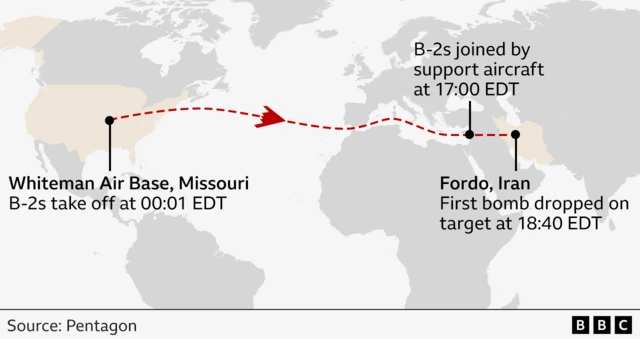
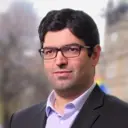**Behrang Tajdin**
BBC Persian
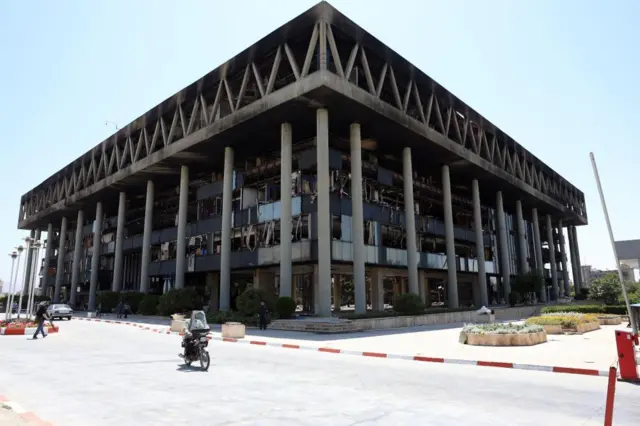Image source, ABEDIN TAHERKENAREH/EPA-EFE/Shutterstock
Image caption,
The damaged building of Iranian state TV after an Israeli airstrike in Tehran - picture taken on 19 June
The most important reason is restrictions imposed by the Iranian authorities on independent journalists - and especially those who work for foreign media.
For decades, the Islamic Republic has viewed foreign journalists as potential spies. Anyone working for a foreign media outlet or news agency has to obtain permission from the government, which is rarely granted.
Even those with who get the permission have their movements and work severely restricted and closely monitored.
Meanwhile, Iranian domestic media are either state-owned, state-allied or severely-controlled, and in constant fear of crossing the ever-increasing red lines.
On top of this, Iranian authorities are not keen on the damage of Israeli attacks being shown. They, like the Israelis, raise security concerns regarding any military or sensitive targets. And when it comes to civilian targets, they don’t want the extent of the damage shown, in order to prevent erosion of morale.
Meanwhile, authenticating and verifying pictures posted on social media is a time-consuming process that may only give us a glimpse.
In contrast, media outlets around the globe have access to a constant stream of live pictures and high-quality, broadcast-ready pictures from Israel, showing how Iranian attacks hit buildings across the country.
The UN Security Council is currently holding an emergency meeting in the wake of US strikes on Iran - you can follow along by clicking **_Watch Live_** above.
Barbara Woodward, the UK's representative at the UN, says Britain's "foremost priority must now be to support de-escalation".
"We have long made clear that Iran must not have a nuclear weapon and that their nuclear programme represents a serious threat to international peace and security," she says.
"The United Kingdom did not participate in US or Israeli strikes," she says - [echoing comments made by Foreign Secretary David Lammy this morning.](https://www.bbc.co.uk/news/live/ckg3rzj8emjt?post=asset%3Ac503ad30-559d-40c6-940f-991084822e66#post)
Woodward adds that "military action alone" cannot bring about a "durable solution" to Iran's nuclear programme, urging "all parties to return" to the negotiating table and find a "diplomatic solution".
We'll bring you the key lines from the emergency meeting - stick with us.
**Ghoncheh Habibiazad**
BBC Persian, World Service reporter
Air defence has been activated in Tehran, north-western Tabriz and central Yazd according to Iranian media.
Iran’s Islamic Revolutionary Guard Corps (IRGC) said two military zones were targeted in the Yazd province earlier today, which killed [seven IRGC members and two conscripts](https://www.bbc.co.uk/news/live/ckg3rzj8emjt?post=asset%3A161c8379-8ec0-4ff7-8d86-812997f0537d#post), according to the IRGC-affiliated Tasnim news agency.
The Israel Defense Forces (IDF) says on social media that it's currently attacking targets in Iran.
[In a post to its Hebrew-language X account, external](https://x.com/idfonline/status/1936860908040622203), the IDF says its air force is targeting "military infrastructure" in Tehran and western Iran.
The International Atomic Energy Agency's director general, Rafael Grossi, says it can confirm the sites at **Fordo, Natanz** and **Isfahan** were hit by US overnight strikes.
Grossi says the sites at **Isfahan** and **Natanz** had previously been damaged by Israeli strikes, with "extensive additional damage" caused by the new strikes at Isfahan.
He adds that it is "clear" the underground **Fordo** site was "directly impacted" by the strikes but that the "degree of damage inside the uranium enrichment halls can't be determined with certainty".
Iranian regulatory authorities have told the IAEA that there has been "no increase in off-site radiation levels after the latest attacks on the three Iranian nuclear sites".
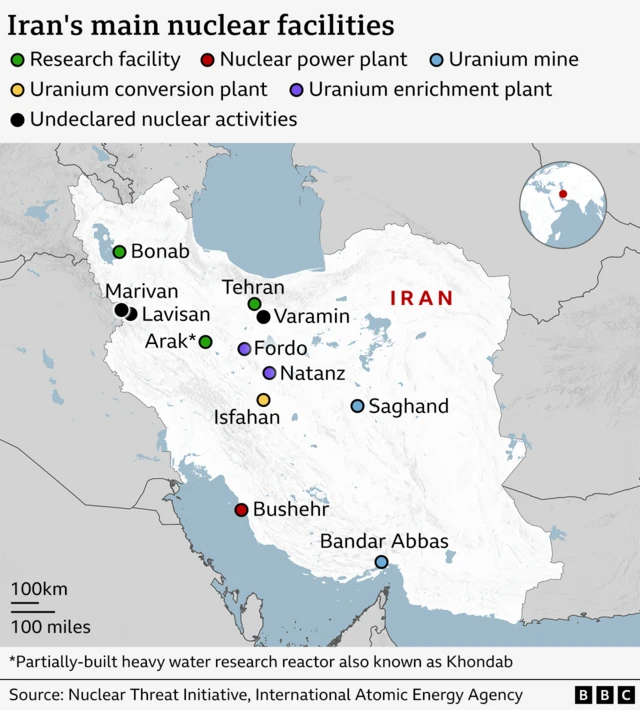
### Retaliate now, later or never: What Iran's next move could bepublished at 20:15 British Summer Time 22 June
**Frank Gardner**
Security correspondent
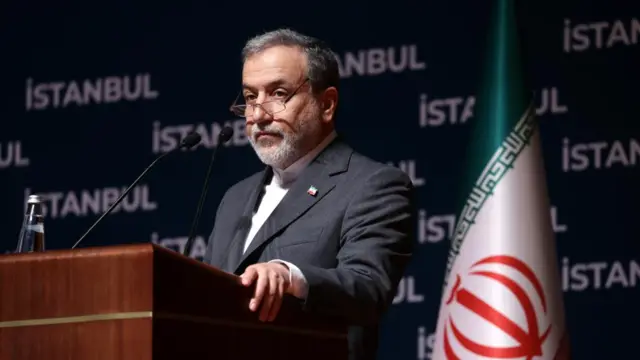Image source, EPA
Image caption,
Iranian Foreign Minister Abbas Araghchi
Iran has responded furiously to the overnight US airstrikes on three of its nuclear sites, vowing what it calls "everlasting consequences".
But beyond the words, there will be feverish discussions taking place at the highest level inside Iran's security and intelligence establishment.
Should they escalate the conflict through retaliation against US interests, or, as US President Donald Trump has called on them to do, negotiate - which in practice means giving up all nuclear enrichment inside Iran?
This internal debate will be taking place at a time when many senior Iranian commanders will be looking over their shoulders, wondering if they are about to be the next target of an Israeli precision airstrike or whether someone in the room has already betrayed them to Mossad, Israel's overseas spy agency.
Broadly speaking, there are three different strategic courses of action now open to Iran - to retaliate now, later, or never.
None of them are risk free, and uppermost in the minds of those taking the decisions will be the survival of the Islamic Republic regime.
* [Read more analysis from the BBC's security correspondent, Frank Gardner](https://www.bbc.co.uk/news/articles/c80pvg5nmrdo)
### Misinformation spreads after US strikes on Iranpublished at 19:49 British Summer Time 22 June
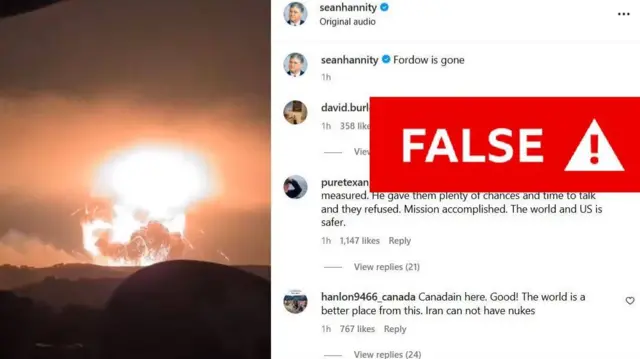
Image caption,
A video shared by Fox News host Sean Hannity, which he claimed showed Fordo, is actually of Syria in December 2024
**By Sebastian Vandermeersch and Shayan Sardarizadeh**
Misinformation is circulating online following last night’s US strikes on three nuclear sites in Iran.
Several widely shared videos falsely claim to show the strikes and have been viewed millions of times on X, but none of them were filmed in Iran.
One video shows a Ukrainian strike on a Russian ammunition depot in September 2024, another shows a Russian strike on Kyiv earlier this week, and a third depicts an Israeli airstrike on a missile base in Syria from December 2024.
Some of this content has been amplified by high-profile figures, including Michael Flynn – Donald Trump’s former national security adviser – as well as conservative commentator Clay Travis and Fox News host Sean Hannity, who wrote on Instagram: "Fordow is gone."
**Ghoncheh Habibiazad**
BBC Persian, World Service reporter
Since the recent US strikes, there are whispers from inside Iran that the country will close the strategic Hormuz Strait - although nothing is concrete yet.
The strait is located in the Gulf between Oman and Iran, and is considered the world's most vital oil transit choke point.
Foreign Minister Abbas Araghchi, when asked today if the country will close the strait, said there are "various options" on the table.
The Islamic Revolutionary Guard Corps (IRGC) has speedboats that could be used to blockade the strait. Its closure could lead to significant delays in the supply of oil needed by global markets, with a rise in oil prices.
Around a fifth of the planet's crude oil goes through the strait, which is only 40km wide at its narrowest point.
Several countries could be impacted, including the Gulf countries such as Saudi Arabia, the UAE, and Kuwait, but the impact is not limited to them.
China, India, Japan, and South Korea are among the top importers of crude oil that passes along it. Beijing is highly unlikely to welcome any rise in oil prices or disruptions to shipping routes.
And of course, by closing one of its major export routes, Iran itself would lose out. US Secretary of State Marco Rubio today said it would be “economic suicide”.
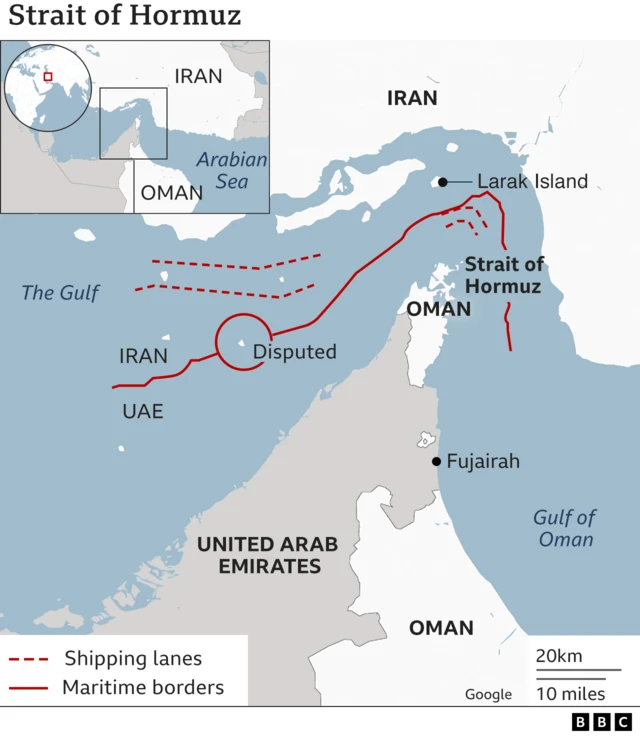
**Ghoncheh Habibiazad**
BBC Persian, World Service reporter
More than 200 locations in Tehran alone have been attacked by Israel since the conflict began, the city's governor Mohammad Sadegh Motamedian, says.

 Frank Gardner
Frank Gardner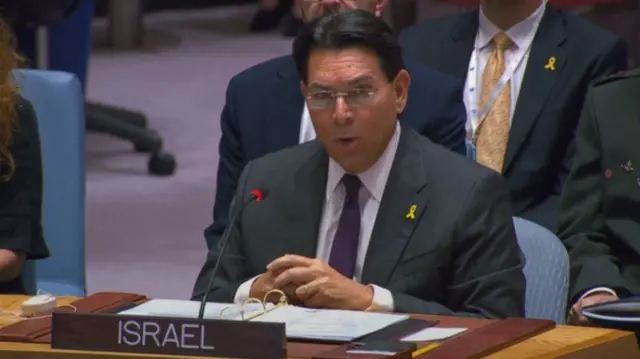
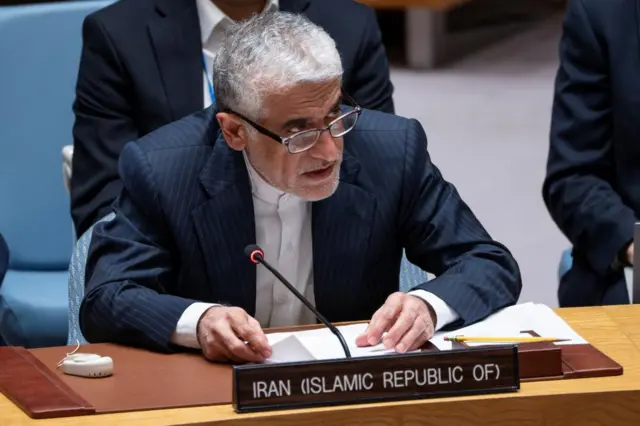 Image source, Reuters
Image source, Reuters Ghoncheh Habibiazad
Ghoncheh Habibiazad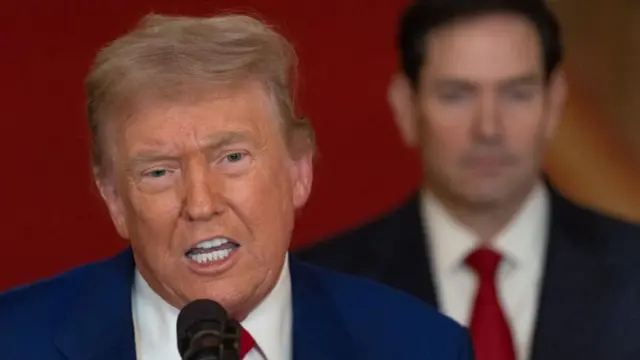 Image source, EPA
Image source, EPA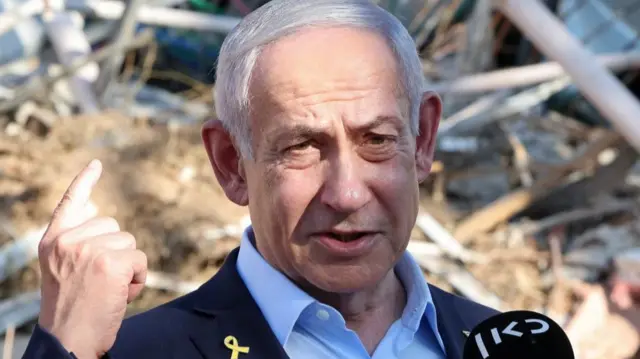 Image source, EPA
Image source, EPA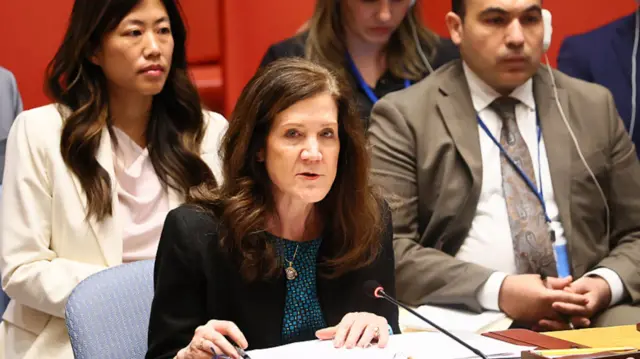 Image source, Getty Images
Image source, Getty Images